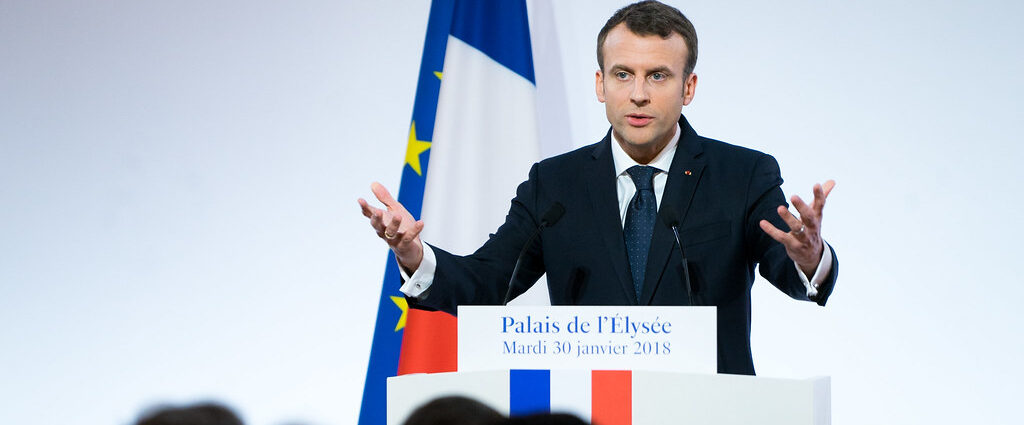Molly Finlay
French President Emmanuel Macron has pledged to enshrine abortion rights within the country’s constitution, making them “irreversible” by 2024.
What has Macron pledged?
In an online post on Sunday 29th October, President Macron announced his government’s plans to make abortion rights constitutional by the end of the year.
Writing on Twitter/X, Macron stated: “The draft constitutional law will be sent to the Council of State this week and presented to the Council of Ministers by the end of the year.”
In 2024, women’s freedom to have an abortion will be irreversible.”
Fondé sur le travail des parlementaires et des associations, le projet de loi constitutionnelle sera envoyé au Conseil d'État cette semaine et présenté en Conseil des ministres d’ici la fin de l'année.
En 2024, la liberté des femmes de recourir à l'IVG sera irréversible. https://t.co/4uSoIJu310
— Emmanuel Macron (@EmmanuelMacron) October 29, 2023
Macron’s announcement comes after a promise he made on 8th March, International Women’s Day, in which he stated: “Let us engrave in our constitution the freedom of women to resort to abortion.”
The statement was seen as a response to the overturning of federal abortion rights, known as Roe v. Wade, in the US last year.
How Does the French Constitution Work?
Constitutional revision in France requires either a referendum or approval by at least three-fifths of the members of both chambers of parliament united in a congress.
“Over 80 per cent of respondents voting in favour of the constitutional amendment”
Most constitutional changes in post-war France have been approved by congressional vote.
French opinion polls have suggested that the public is widely in support of Macron’s pledge, with over 80 per cent of respondents voting in favour of the constitutional amendment.
Despite this, Pro-Family Representative to the United Nations, Mattea Merta, has come out in opposition of the amendment, writing: “Amongst all the issues France is facing, Emmanuel Macron has prioritized making abortion an irreversible, constitutional right.”
Amongst all the issues France is facing, Emmanuel Macron has prioritized making abortion an irreversible, constitutional "right". pic.twitter.com/AoEtIQSgnT
— Mattea Merta (@MatteaMerta) October 31, 2023
As a global political advisor, Mattea Merta has advocated traditional family values at both the UN and the Canadian parliament.
Merta has explored abortion policy issues from the perspective of a practicing Christian on her own podcast, as well as engaged with other pro-life organisations such as the Society for the Protection of Unborn Children.
History of Abortion Rights in France
France decriminalised abortion in 1975 by passing the Loi Veil, a piece of legislation named after Simone Veil, a post-war politician who headed efforts towards decriminalisation.
Women can access abortion in France up to fourteen weeks of pregnancy.
They can also choose to receive a medical abortion at home up to seven weeks of pregnancy via telemedicine. Similarly, women in the UK can access telemedical abortions up to ten weeks gestation.
Abortion Laws Across Europe
In Italy, despite abortion being legal until thirteen weeks, the predominance of Catholicism creates barriers to abortion access, with a severe lack of medical practitioners willing to perform the procedure.
Poland has some of the strictest abortion laws across the continent, allowing for termination only in cases of rape, incest or a threat to the mother’s health or life. In 2020, a tribunal ruled that abortions on the grounds of foetal defects were unconstitutional, ending the most common legal route for terminating pregnancy.
“It is a victory for all women and a strong symbol sent to other countries in the world.”
Opponents to Macron’s proposed amendments such as Merta have argued that “Poland and Hungary are examples of good family policy which is helping restore their economy and rebuild the social fabric of their nations.”
In France, two medical consultations are mandatory before a woman can receive an abortion.
Appearing to support the proposed amendment, France’s minister for gender equality Bérangère Couillard said, “It is a victory for all women and a strong symbol sent to other countries in the world where our rights are going backwards.”
Le Président de la République s'y était engagé.
Le droit à l'#IVG sera sanctuarisé dans la #Constitution et je m'en réjouis.
C'est une victoire pour toutes les femmes et un symbole fort envoyé aux autres pays du monde où nos droits reculent. https://t.co/5FH9vI3iyC— Bérangère Couillard (@BCouillard33) October 29, 2023
READ NEXT:
-
Abortion services buffer zone bill published in Scotland
-
Riots Continue in France
-
Roe v. Wade: America’s constitutional right to have an abortion is overturned
Featured image courtesy of Jacques Paquier on Flickr. Image licence found here. No changes were made to this image.

